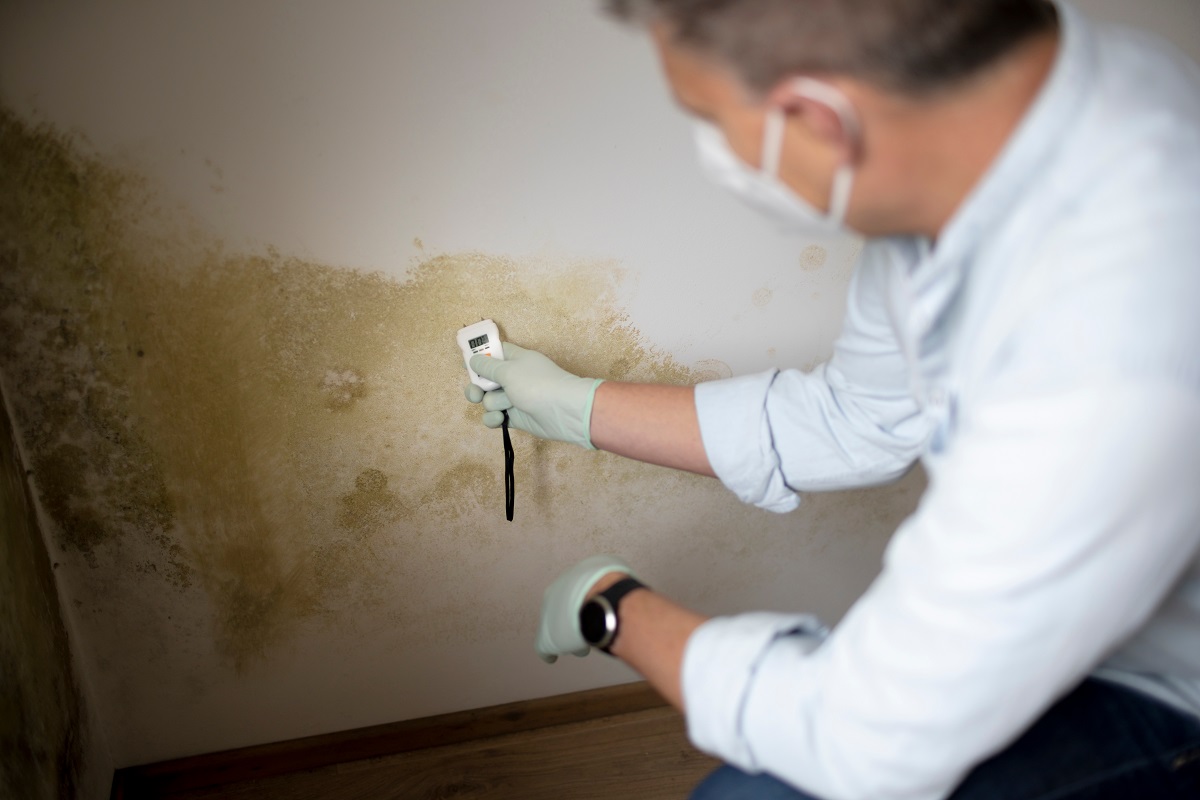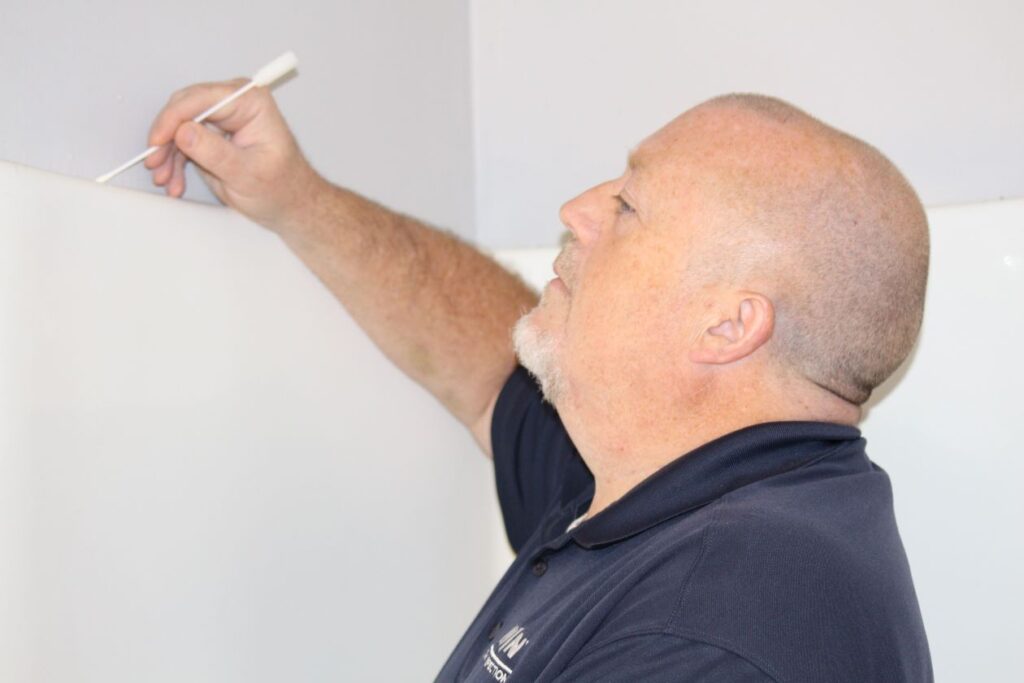Ready to Embark on an Exciting Journey with WIN?
Take the first step toward personal and financial freedom by filling out the interest form. One of our franchise advocates will be in touch with you soon!

Did you know that around 70% of homes in the U.S. have some form of mold? Mold can cause serious health issues, including respiratory problems, allergies, and even long-term illnesses. This makes the role of a mold inspector not just important, but crucial in safeguarding the health and well-being of countless families. As a mold inspector, you have the unique opportunity to make a significant impact on public health by identifying and mitigating mold issues in homes and businesses.
This article will guide you through the steps on how to become a certified mold inspector, equipping you with the knowledge and skills to make a real difference in your community. Whether you are starting a new career or expanding your expertise in the home inspection industry, this role offers a fulfilling path where your work directly contributes to creating healthier living environments.

Mold inspectors play an important role in identifying and assessing mold growth in homes and buildings. Their line of work includes inspecting properties for signs of mold, taking air and surface samples, analyzing these samples in a lab, and providing detailed reports on their findings. They can recommend remediation methods and educate clients about the health risks associated with mold and the importance of addressing mold issues promptly.
Each state has different requirements for becoming a mold inspector. Research what certifications and licenses are necessary in your state to ensure you meet all the legal requirements. Some states may require specific training courses, exams or field experience. States with specific regulations include Florida, New York, Louisiana and Texas, to name a few. Familiarizing yourself with these requirements early on will help you plan your certification path more effectively.
Select a certification program that is well-recognized and accredited. Look for programs that offer comprehensive training covering all aspects of mold inspection and analysis. One example is the National Association of Mold Professionals (NAMP), approved by the National Association of Home Inspectors (NAHI). These programs should include coursework on mold biology, health effects, inspection techniques, sampling methods, and proper use of personal protective equipment. Online reviews, industry recommendations, and the program’s reputation can help you choose the right one.
After completing your training, pursue professional certifications, such as Certified Mold Inspector (CMI) or Certified Indoor Environmentalist (CIE). These certifications demonstrate your expertise and are often required by employers or clients. Choose a certification that aligns with your career goals, whether you plan to work for a company or independently.

Practical experience is the next step in becoming a quality mold inspector. Work under a certified mold inspector to gain hands-on experience. This will help you apply what you’ve learned and build your confidence. On-the-job training allows you to see real-world scenarios, understand client interactions and practice using inspection tools and equipment. Some certification programs may also offer internships or field training opportunities.
Develop a system for collecting and sending mold samples to accredited laboratories for analysis. Establish partnerships with reliable labs that specialize in mold identification. Ensure you understand how to interpret lab results and use them to provide actionable insights to clients. You can easily find AIHA-LAP-accredited labs here.
Mold inspectors should have professional liability (errors & omissions) insurance to protect against potential claims of negligence. Depending on your location and business setup, general liability insurance may also be required to cover accidents or damage that could occur during inspections.
Investing in safety and inspection tools is essential to performing your job effectively. Make sure your safety gear includes N95 or P100 respirators, gloves, protective suits and goggles to protect against mold exposure. For inspection equipment use moisture meters for detecting water, infrared cameras for spotting hidden moisture pockets, hygrometers for measuring humidity, and air sampling pumps for collecting mold spore samples. Quality equipment ensures accurate results and builds trust with your clients.
Once certified and licensed, you can start your own mold inspection business. Create a business plan, market your services and start building a client base. Key steps include registering your business, setting up a professional website, investing in essential equipment, and networking with real estate agents, property managers and contractors.
WIN Home Inspection has been helping entrepreneurs do all that and more for over 30 years. The in-house support team can provide you with marketing support, training for additional services, and access to advanced tools and technologies to help grow your business.
Below are some steps to take if you’re interested in starting your own business:
» Also Read: How to Start a Home Inspection Business
If you don’t want to start your business, working for someone else is an option. When searching for mold inspector positions, there are a number of strategies you can use to maximize your chances of landing a job. Start by creating a professional resume that highlights your certifications, practical experience, and key skills, such as attention to detail and problem-solving abilities. Use online job boards like Indeed, LinkedIn, and specialized environmental job sites to find openings in your area.
Networking is also crucial – connect with industry professionals, attend conferences, and join relevant associations such as the National Association of Mold Professionals (NAMP) to access job boards and networking opportunities. Tailor your applications to each job, emphasizing how your qualifications align with the specific requirements of the role. Additionally, consider reaching out directly to mold inspection companies to inquire about potential openings and express your interest in joining their team. By combining these strategies, you can effectively navigate the job market and secure a position as a mold inspector.

Mold inspectors in the U.S. can make between $37,625 and $49,550 annually. Home inspectors, on the other hand, generally earn between $50,000 and $80,000 per year, or more if they are also certified to do mold testing. Like home inspectors, mold inspectors’ salary depends on their level of experience, the demand in their region, and their ability to offer diverse inspection services.
Becoming a WIN Home Inspection franchise owner can significantly increase your annual earnings. WIN offers in-house training for over 35 essential services, including mold testing, allowing you to provide more comprehensive inspections and earn more than inspectors who only focus on mold. Additionally, WIN provides end-to-end marketing services, helping you reach more clients and grow your business.
» Also Read: How Much Do Home Inspectors Make?
Choosing to partner with WIN can significantly boost your career as a mold inspector and beyond. WIN has been ranked as the #1 franchise in the industry year after year. This consistent recognition highlights the franchise’s commitment to excellence and industry leadership.
With the largest in-house support team in the industry, WIN provides you with the support and resources you need to succeed, from technical assistance to business advice. WIN offers extensive training, equipping franchise owners with the skills needed to offer a wide range of inspection services, thereby increasing your marketability and income potential.
Marketing can be a daunting task for new business owners, but WIN makes it easy by offering end-to-end marketing services. This ensures that you can effectively reach and attract clients without the stress of handling marketing efforts on your own. If you are interested in starting a franchise with WIN, please fill out the interest form, and we will contact you as soon as possible.